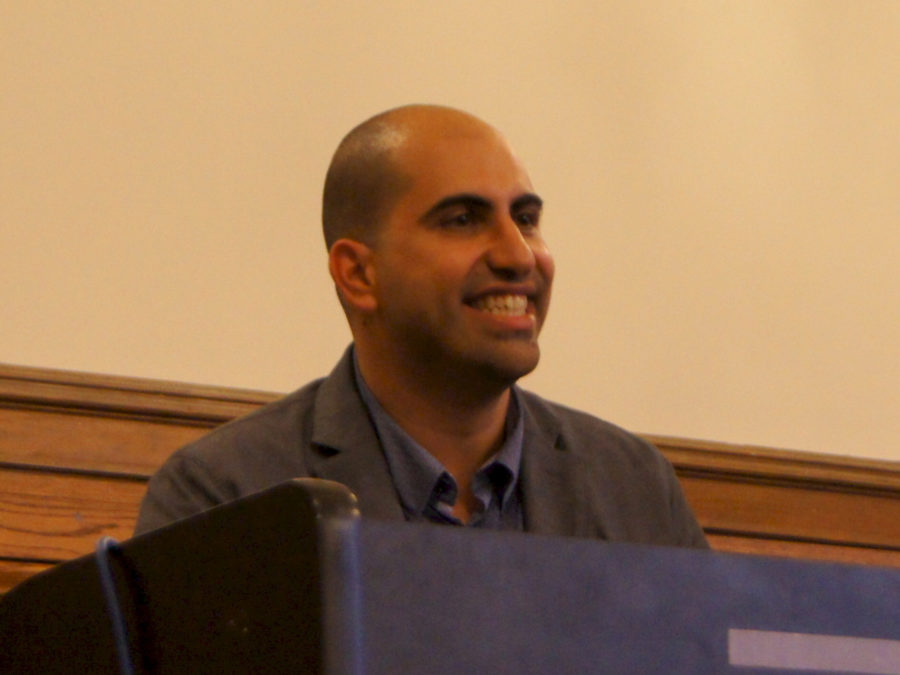Salaita files motion against UI for destroying evidence
August 26, 2015
Steven Salaita has another bone to pick with the University: destroying evidence in his case.
In a motion filed late Tuesday, Salaita charged officials for intentionally destroying evidence and asked for the University to preserve all evidence in the case. Salaita’s lawsuit was filed in January after the University rejected his appointment.
He initially sued University administrators, the Board of Trustees and unnamed donors for violation of his rights to academic freedom and intentional infliction of emotional distress. In the suit he seeks monetary compensation and the position for which he was originally hired.
Salaita is currently serving as the chair of American Studies at the American University of Beirut. The job is a one year, untenured position and he said he would still like to return to the University as a tenured professor in American Indian Studies.
These motions come after the University released 1,100 pages of personal emails that were not included in Freedom of Information Act requests.
Get The Daily Illini in your inbox!
Within the released emails, Wise wrote that University spokesperson Robin Kaler warned her not to use email.
“We are doing virtually nothing over our Illinois email addresses. I am even being careful with this email address and deleting after sending,” Wise wrote.
Omar Shakir, one of Salaita’s representatives with the Center for Constitutional Rights, said Salaita’s legal counsel does not know the full extent to which the University deleted evidence.
Rather, Shakir said the released emails give Salaita’s legal counsel reason to believe administrators “consciously destroyed communications about the case.”
Shakir said the intent of the motion is to gather more evidence to be used in the discovery portion of the trial, in which each side is given the opportunity to present evidence supporting their stance.
Salaita said he doesn’t think they released emails have necessarily affected the lawsuit itself but he believes they have influenced the public perception of the case. He said he can’t speculate on why administrators destroyed evidence, if at all.
“I can only observe that it wasn’t a very good idea,” Salaita said.
If evidence was destroyed, Shakir said administrators would be “in violation of clear obligation, not only under state law under state law but also to the courts.”
Kaler said the University received copies of Salaita’s motion late Tuesday and attorneys are still in the process of reviewing and responding to them.
Wise and Provost Ilesanmi Adesida both resigned after the emails were released.
The email release also revealed an email from Senator Dick Durbin, in which he told Wise he supported her decision to dismiss Salaita.
“Phyllis, I want you to know that I totally understood the difficult decision you faced in the recent tenure dispute and never doubted that you acted in a good faith effort to serve the University and its values,” Durbin wrote.
He also told Wise he spoke to former Board Chairman Chris Kennedy, who was “solidly in (Wise’s) corner.”
Salaita said he was concerned a senator has “so little concern for the first amendment.”
In a press release issued by the Center for Constitutional Rights, Salaita called the University’s decision to destroy evidence disheartening.
“The wonderful students and scholars at the University have a right to expect transparency and accountability from the leadership of their great university,” Salaita said in a press release. “I am hopeful that new leadership will restore the University’s reputation by rectifying the wrongs stemming from my case.”







